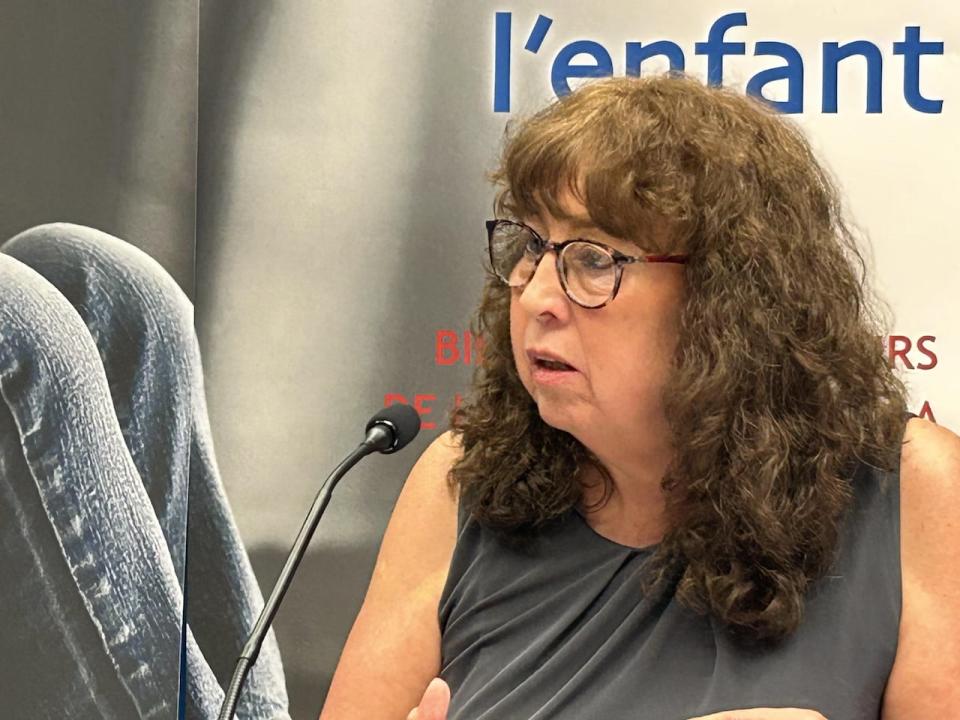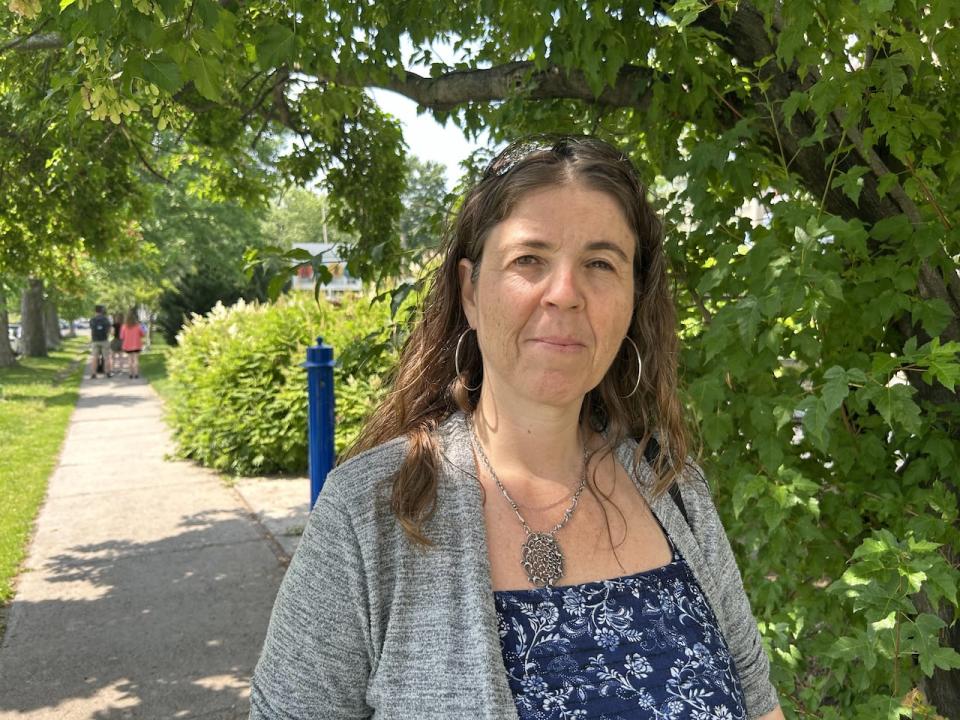Quebec youth protection report emphasizes impact of intimate partner violence on children
The latest Quebec youth protection services annual report is drawing attention to the repercussions of intimate partner violence on children's physical and psychological well-being.
Quebec youth protection services (DPJ) says it processed 17,193 calls for exposure to conjugal violence just in the last year.
Assunta Gallo, director of youth protection at the CIUSSS du Centre Sud de l'île de Montréal, said at a news conference Tuesday that this year's annual report is intended to remove conjugal violence, particularly violence against women, from "the intimacy of private life."
"It still remains a taboo subject," Gallo said, noting that violent partners choose to behave violently. "Men must be held responsible for the actions they take."
Across Quebec, youth protection services processed a total of 134,871 reports in the last year and retained 42,378 of them.
Of the total number of reports received, 100,258 children were the subject of at least one referral to the DPJ. That translates to more than one in 20 Quebec children ages 17 and younger, the report said.
Since legislative changes to the Youth Protection Act went into effect last year, the DPJ says it is now focused on how exposure to conjugal violence affects the well-being of children.
Exposure to conjugal violence
Children may be directly and indirectly exposed to violence between their parents, Gallo said.
A child who witnesses their parents fighting or sees broken objects in their home are examples of direct exposure.
When the environment the child lives in is "filled with constant fear," they are exposed to conjugal violence indirectly, which remains harmful, she said.
In Montreal, there were 15,587 reports to youth protection at the CIUSSS du Centre Sud de l'île de Montréal — a six per cent increase since last year, Gallo said. Those referrals involved at least 11,524 children.
'Serious consequences'
The Batshaw Youth Centre — the institution that provides youth protection services to English-speakers in Montreal — received 5,497 reports in 2023-24 and retained 1,924 of them, said Linda See, the director of youth protection for the CIUSSS de l'Ouest de l'île de Montréal.

See said around a third of the 959 calls related to exposure to conjugal violence were retained.
"When children are victims or a witness of this violence between their parents, there can be serious consequences for their emotional well-being and physical safety," See said. "It can also have repercussions on the development of their own intimate relationships as adults."
See said Batshaw currently follows 1,732 children, and 543 of them are for cases related to conjugal violence or psychological maltreatment.
"It takes a village to raise a child, but it takes a whole society to protect them," See said.

Guylaine Simard, the director of the West Island Women's Shelter, which offers services to single women and children who are victims of conjugal violence, said the shelter is increasingly having to turn people away because of a spike in demand since the pandemic.
Simard said many of the children the shelter welcomes don't understand the abuse they are experiencing at home.
"They're not feeling good, but they don't know why," she said. "Usually they feel guilty about all those 'explosions' at home."
Only after abusive parents "take responsibility for their behaviour and their impact on the children," can a child consider having a new relationship with their parent, she said.
"When they have support, it's easier for them to rebuild themselves. But a lot of them need time," she added.


